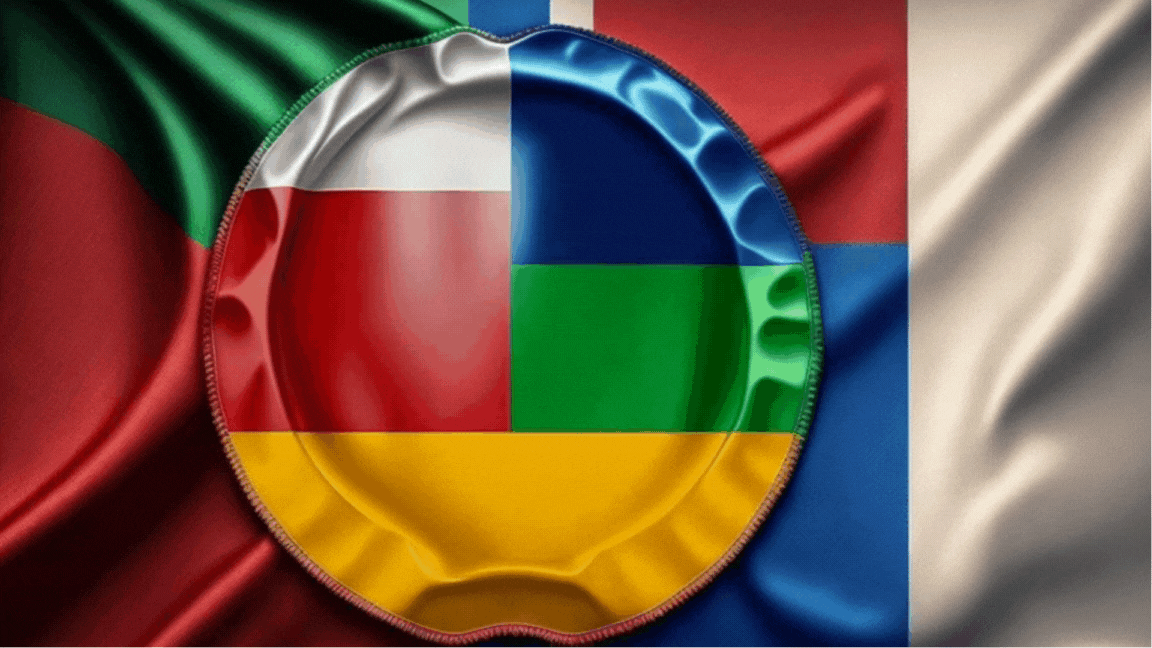The Latin American Report # 369

The security policy implemented by Salvadoran President Nayib Bukele continues to generate controversy and unease in certain sectors, among human rights groups and relatives of people who assume they are innocent but who fell into the nets of the police, who sometimes capture good people along with the bad guys, amid the state of emergency. Some of those believed to be innocent have died while in state custody—about 300 since 2022. It is true that the aggressive security policy of Bukele—who is controversially installed in the old Country Club for a second term—has considerably reduced the gang cancer that had already metastasized in Salvadoran society, and that he is a leader followed by an overwhelming majority of the population, but also real is the anxiety of a baker in the town of Soyapango who begs to see his son “even for a minute” two years after being imprisoned, a request for “faith of life".
In any case, it is not clear that the son of the modest baker is one of the 30,000 innocent people that some organizations denounce are trapped inside the strict prison system promoted by the Bukele administration, which prevents visits and keeps inmates incommunicado. A former Salvadoran Supreme Court judge tells AFP that “[it is] inhumane, totally desperate the situation in which thousands of people are,” a criticism rejected by the authorities, who portray human rights organizations that dispute the emergency regime as accomplices of the gangs. “I thought [the measure] was for gang members, not for innocents,” says the father of a maquila worker who was apparently imprisoned only for having installed a video game associated with members of the Mara Salvatrucha gang. The situation of prisoners who have court orders for “immediate release” that have not been executed is also debatable.
Visiting Costa Rica this week, Bukele attempted to lecture President Rodrigo Chaves on prison and penal administration. For example, Bukele said it was immoral to spend more on a prisoner than a worker's minimum wage, in what seems to me at least a fair discussion, loaded with philosophy if you will. Undoubtedly Costa Rican prisoners have more rights than in El Salvador, said Bukele, who has threatened to cut off food supplies to prisoners if they stimulate killing and violence in the population from the prisons. Costa Rica, once a largely peaceful nation, has been plunged in recent years into a spiral of violence in part fueled by the “importation” of methods from Mexican cartels.
El presidente de El Salvador, Nayib Bukele, visitó el centro penitenciario La Reforma, el más grande de Costa Rica, tras ser invitado por su homólogo Rodrigo Chaves. pic.twitter.com/lCgABcNOlv
— Voz de América (@VozdeAmerica) November 14, 2024
Bukele was decorated by his Costa Rican counterpart and ordered the sending of aid consisting of human and material resources to alleviate the impact of heavy rains in Costa Rica. Always given to breaking schemes, whether speaking in a United Nations forum or in matters of economic policy, his bet on bitcoin gained arguments this week after the all-time-high of the cryptocurrency registered this week, amid the positive expectations after the victory of Donald Trump in the United States.
El Salvador's Strategic Bitcoin Reserve:
— The Bitcoin Office (@bitcoinofficesv) November 13, 2024
$550,133,570
🇸🇻https://t.co/p8wKfG23xh pic.twitter.com/mElPZXEEm3
Haiti
The situation in the Caribbean nation shows signs of worsening further if that was an option. The UN has suspended aid deliveries because both the port and airport of Port-au-Prince have again suspended operations amid a new escalation of violence, which has included gunfire against international flights attempting to land at Toussaint Louverture. In the case of the port, land access to the facility is blocked. Twenty trucks carrying critical supplies destined for the country's south will not ride until further notice. UN-backed cash deliveries are also suspended due to the lack of security. Kenyan troops have proven insufficient to curb the powerful gang syndicate that plagues Haitians, plunging them into hunger and misery. The de facto authorities trying to pave the way for elections after a long democratic drought have shown the fragility of the nation, tainted by the heavy shadow of corruption. Some countries such as the United States, the most financially supportive of the multinational security mission, have openly shown their doubts about the presidential transitional council. On Thursday, heavy gun battles were reported between police and gangs seeking to take over one of the few remaining pockets of relative peace in the Haitian capital. People fled en masse. “I've lived here 40 years of my life and I've never seen it this bad,” said a Haitian fleeing with his son in his arms.
Spiraling violence and airline shutdowns in Haiti cut families off from adoptive kids (from @AP) By @meganjanetsky https://t.co/jC6VXj4eSZ
— E. Eduardo Castillo (@EECastilloAP) November 13, 2024
Haiti: We condemn in the strongest terms the killing of at least 2 patients who were executed after an MSF ambulance was stopped by Haitian police.
— Doctors w/o Borders (@MSF_USA) November 13, 2024
MSF personnel in the ambulance were violently attacked, tear-gassed, held against their will for 4+ hrs.https://t.co/Ht3wnvWxgH
Guns smuggled from the US are blamed for a surge in killings on more Caribbean islands https://t.co/j7AzvNECcj
— WSVN 7 News (@wsvn) November 13, 2024
Attack yesterday, Wednesday, at the Three Powers Square in Brazil
Brazil authorities link bombing in the capital to extremist discourse
— David Biller (@DLBiller) November 14, 2024
📝@pessoagabi
📷@eraldopereshttps://t.co/NoKkUaA5hW
And this is all for our report today. I have referenced the sources dynamically in the text, and remember you can learn how and where to follow the LATAM trail news by reading my work here. Have a nice day.

